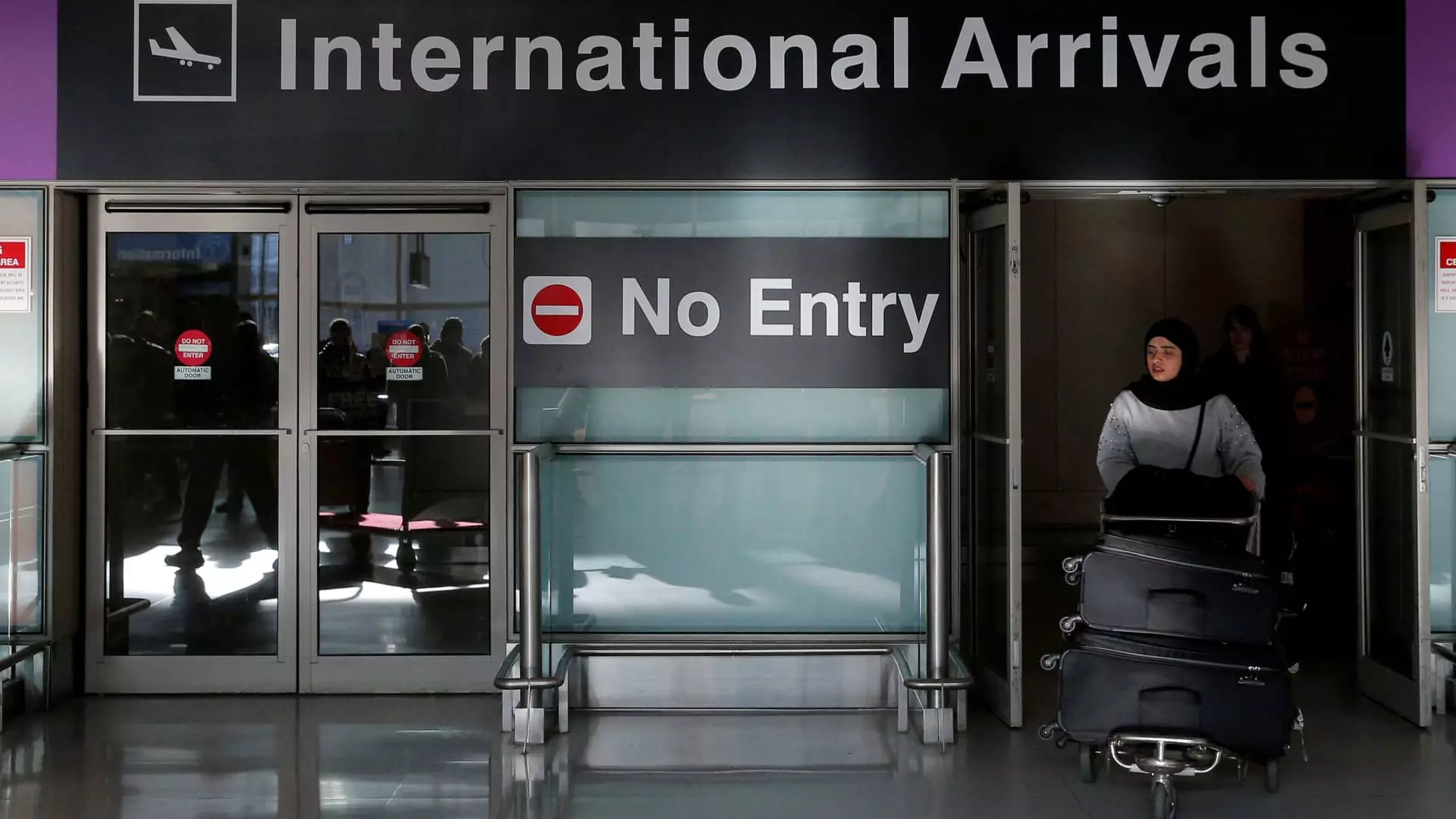President Donald Trump’s decision to implement a new travel ban targeting citizens from twelve predominantly African and Middle Eastern nations is a stark reminder of how politics can unjustly discriminate against vulnerable populations. As the proclamation takes effect, the repercussions resonate far beyond mere travel restrictions; they perpetuate a narrative of fear and exclusion. Citizens from Afghanistan, Myanmar, Chad, and beyond are already grappling with immense challenges in their home countries, ranging from violence and unrest to dire economic situations. By closing the door to these individuals, the U.S. government sends a chilling message: safety and opportunity are luxuries afforded only to certain groups.
The comments from individuals like Elvanise Louis-Juste exemplify the emotional toll of this policy. Many Haitian nationals, desperate for a better life, merely seek to escape the dire realities that plague their homeland. The stigma surrounding migrants portrayed by Trump and his administration fosters division and amplifies xenophobia, making it easier to cast those who seek refuge as threats rather than fellow humans deserving of compassion. It’s disheartening to witness how political rhetoric continues to disregard the fact that many migrants are fleeing persecution or violence.
The Pretext of National Security
Administration officials have couched this new travel ban under the guise of national security. Trump has claimed that nationals from the specified countries pose threats related to terrorism and overstayed visas. However, this justification rings hollow when scrutinized. History has shown that the majority of those involved in terrorism-related activities often do not come from the targeted countries. Instead, they often arise from a complex web of social, political, and psychological factors, many of which can be traced back to grievances such as poverty, war, and instability—conditions the U.S. has often contributed to through foreign intervention.
By pointing to statistical reports on visa overstays, the administration conveniently overlooks the fact that large numbers come from nations with extensive ties to the U.S., who might not face as stringent scrutiny. For instance, the recent terror incident in Boulder, involving an individual from Egypt—whose nationality, ironically, is not included in the travel ban—highlights the fact that assuming a direct correlation between nationality and threat is not only simplistic but dangerous. It fosters an environment where individuals are judged not by their actions but by their nationality alone, leading to unwarranted stigmatization.
A Policy Rooted in Fear and Division
The consequences of this travel ban extend far beyond the confines of immigration policies; it represents a broader societal issue that promotes division and fosters fear. Organizations such as Oxfam America have rightly condemned this policy as an attack on community solidarity, branding it as a means to vilify immigrants while obscuring the true drivers of safety and security.
Moreover, the international backlash from leaders like Venezuela’s Nicolás Maduro further illustrates the broader implications of such a ban on diplomatic relations. Instead of fostering unity in the fight against global issues, such as humanitarian crises and refugee resettlement, this travel ban entrenches hostility and reinforces a narrative that demonizes entire nations based on the actions of a few. It is a troubling trajectory that not only affects foreign policy but also undermines the foundational values of America as a refuge and a beacon of hope.
The Public’s Response and Its Importance
A significant aspect of this contentious travel ban is the response it elicits from the public. As Americans grapple with the moral implications of these policies, civil society must stand up for equitable treatment and human rights. Voices like that of Louis-Juste are vital in illuminating the harsh realities faced by those seeking asylum.
It’s a call to action for ordinary citizens to engage in discourse, to connect with those affected, and to push back against the portrayal of immigrants as the “other.” The fear-mongering tactics employed by the administration must be challenged. Only through collective advocacy can a counter-narrative emerge—one that champions diversity, inclusion, and the unwavering principle that everyone deserves the right to safety and dignity, regardless of their country of origin.
In an ever-evolving political landscape, the importance of vigilance cannot be overstated, and as a society, we must not succumb to the divisive rhetoric surrounding immigration. It is time to redefine what it means to welcome those in need within our borders and reaffirm our commitment to human rights for all.



Leave a Reply